Jihadwatch is watching the Maldives. Jihadwatch, set up by the David Horowitz Freedom Center in the United States after the 11 September 2001 attacks on New York, is run by prominent rightwing American conservatives convinced that Western civilization is in danger of being annihilated by ‘Islamic terrorism’.
The chief aim of Jihadwatch is that of ‘correcting popular misconceptions about the role of Jihad and religion in modern-day conflicts’.
This has meant reducing the inherent complexities of the Islamic concept of Jihad to a singular understanding of the term: Jihad is a Muslim Holy War against the West. Some of the contributors to Jihadwatch are among those who have made the most prolific contributions towards cementing the dangerous theory of a clash between Islam and Western civilization.
With the announcement by President Nasheed on 21 November 2009 that he was seeking advice on whether or not the Maldives should ban places of worship for other religions, the Maldives provided Jihadwatch with just the kind of material to spread their message of Islam as an enemy of human freedom and civilization. The article itself, and the comments left by visitors, make interesting reading for the government, and for the purported religious readers that currently seem to hold sway over what happens in the country.
Clash of civilisations
The issue here is not that the Maldivian government should let its policy be informed by the output of a website such as Jihadwatch. After all, it is such advice and thinking that informed the policies of the previous U.S. administration that led the world into the disastrous ‘War on Terror’.
No, the reason why being watched by Jihadwatch should be of concern to the Maldivian government is because it raises the question of how the Maldives ended up being involved in this ‘Islam versus West’ debate at all.
If President Nasheed is seeking ‘advice from religious scholars on Islam’s position on allowing non-Muslims to worship in an Islamic community’, he would also do well to seek advice on how to deal with the dangerous issues that the country will have to face once it finds itself well and truly caught up in the so-called ‘clash of civilisations’ debate.
The most pressing issue here is that the Maldivian government should realize the direction in which these ‘religious leaders’, with their proposals for introducing intolerance into Maldivian laws, is taking the country.
If the government fails to recognize the implications of allowing them to lead the Maldives into the maelstrom of the dangerous Islam versus the West debate, the nation will soon find itself in deeper waters than those that threaten to force it under rising sea-levels.
Imported
For centuries the Maldivians have been Muslims. Its constitution has always dictated that to be a Maldivian citizen, one has to be a Muslim. Yet, until now, it has managed to avoid being predominantly identified as an ‘Islamic state’ – extremist or otherwise – in western security discourse. Even in the immediate aftermath of 11 September 2001, the Maldives escaped from being grouped into either of the two camps into which the former US administration divided the world: ‘either you are with us [the West], or you with the terrorists’.
This is no small achievement, for a nation of 300,000 people who have been Muslims by law since 1153 AD. How did the country manage to distance itself from being typecast in this crude manner?
By practicing Islam peacefully. By being Muslims who were not dictated to by the diktats of sects and factions within Islam. By adhering to the tenets of Islam that make it a religion of peace. By being united in their faith in a manner that was uniquely Maldivian.
The Maldives has escaped war, ethnic conflict and civil strife in this war-torn world precisely because its people have been united in their belief and practise of Islam in a manner that has been unique to their own cultural and social identity.
In the last eight years or so, however, a particular brand of Islam has been imported into the country by persons whose underlying motives the government has failed to question and whose activities the government has left unchecked. The number of ‘learned clerics’ whose methods and sources of learning no one knows, have mushroomed with breathtaking rapidity.
The Muslims of the Maldives and their unique identity have been marauded by the force of the dubious religious rhetoric that now reverberates in its parliament and its public sphere.
Thought-revolution
There has been a thought-revolution in the Maldives the force of which has affected the Maldivian people as profoundly as Mao’s Cultural Revolution affected the people of China.
The government needs to question how this silent yet so starkly visible revolution happened without protest, how a people’s identity has been taken away so completely, how they have been so easily persuaded into leaving centuries of cultural norms and ingrained ways of practicing their faith for methods and practices that have been imported en masse from other cultures, from certain sects within Islam.
The last government and the barriers it had set up against intellectual development is just one of many reasons. But there is more, and the government needs to ask the right questions and find the answers, if it is to halt the relentless regression towards disaster that the Maldives is currently caught up in.
If the Maldives continues along this path of radical change, it is going to come under more than just the watchful eye of those trying to blame Islam and its teachings for all the woes of the world. The saddest development of all is that a country such as the Maldives, which until now has been a shining example of peace, among Muslim nations is now providing ammunition for those who are perpetrating the belief that Islam is engaged in a war against the West.
President Nasheed fought long and hard for a democratic government in the Maldives, and made personal sacrifices to achieve the goal. He has been busy attempting to bring about much needed reforms.
But, he is showing himself to be extremely weak in facing up to the forces that are impeding his progress. It is time for President Nasheed and his government to realize that if he fails to stand up to these agents of conflict and intolerance, the loss will not only be to his political ambitions but to the nation that he has promised deliverance from dictatorship.
It is laudable to try and save the nation from going under when the sea levels rise; but the ability to hold cabinet meetings underwater is not going to help stop the nation from sinking into troubled waters once it gets caught in the crossfire of the ‘War on Terror’ and the advocates of a clash of civilizations between Islam and the West.
Munirah Moosa is a journalism and international relations graduate. She is currently engaged in research into the ‘radicalisation’ of Muslim communities and its impact on international security.
All comment pieces are the sole view of the author and do not reflect the editorial news policy. If you would like to write an opinion piece, please send proposals to [email protected]
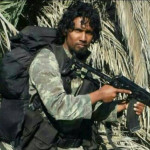
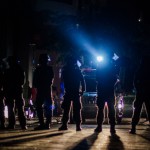
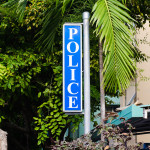
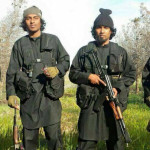
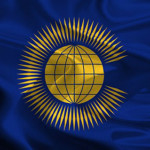
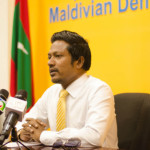
Hi,
Please get your facts right. Jihad does not mean Holy War. Jihad means 'striving'. It can take many forms. It does not necessarily mean violent retribution.
As for the 'radicalisation' of Islam, I feel we are all being bamboozled by the western media.
I have been studying the question for a while - talking to different stakeholders in the current conflict - and guess what? I'm begining to beleive there's no such thing as radical Islam and moderate Islam. It's simply Islam. Different circumstances require different different ways of looking at things, different strategies. Will let you know when I finally decide as I've still got a little more digging to be done on the subject.
Keep on writing. I enjoy reading your column.
Best Rgds
Ali
@ Ali,
Thank you for your comment & support.
Just wanted to clarify one thing. I am in full agreement with you that Jihad is a complex term and that its meaning is deeply contested within Islam. If you went back and looked at paragraphs two and three of the above artcile, you will see that I was criticising Jihadwatch for reducing the 'inherent complexities' contained within the term 'Jihad' to a singular meaning - that of a Holy War.
I was disagreeing with this reductive attitude towards the term, and was being critical of those who take the approach.
However, I feel it is also simplistic to think that we are being bamboozled by 'the Western media'. Just as Islam is not monolithic, nor is 'the West'. There are certain sections in the West that are trying to promote the idea of a 'clash of civilisations' between Islam and the West. Just as there are similar sections within the Islamic population who are trying to do the same. I was trying to point out that a lot of what is happening in the Maldives seems to be led by the latter.
I am also in full agreement with you that 'radicalisation' is a questionable notion - hence the care taken to put the word within inverted commas whenever I use it, including the biographical note.
Thanks again for your support.